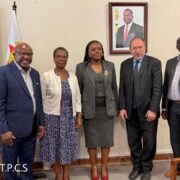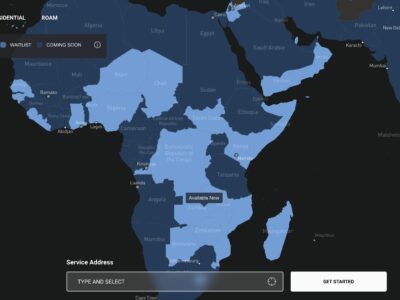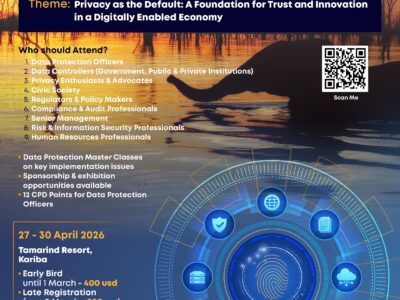Junior Parliamentarians from across the country are set to undergo advanced training in artificial intelligence (AI) and cybersecurity, in a significant step towards Zimbabwe’s digital transformation. This initiative follows the distribution of tablets and Starlink internet kits to 360 young leaders during the 2025 junior Parliament Session, a move aimed at empowering the youths with digital skills.
The gadgets were handed over at a ceremony officiated by the Minister of State for Manicaland Provincial Affairs and Devolution, Advocate Misheck Mugadza, who emphasised the government’s broader vision of equipping 1.5 million youths with digital literacy by 2030.
The donation of tablets and Starlink connectivity fulfils a pledge made by President Mnangagwa during the 32nd Junior Parliament Session on July 3, 2024 when the Junior Parliamentarians appealed for technological support to enhance their legislative and leadership roles.
By Gamuchirai Mapako
“This initiative will go a long way in enhancing digital literacy and skills among Zimbabwean citizens, and empowering a new generation of professionals who can contribute to technological innovation. This digital skills programme is tailor-made to cover the digital divide as youths from remote areas have access to technology,” said Adv Mugadza.
Through the programme, the advocate said, Junior MPs will acquire skills in digital literacy, online safety and effective communication.
Each of the 210 constituencies in Zimbabwe is represented in the Junior Parliament, and every member received a Starlink kit to be installed at their respective schools. This initiative ensures that by the end of the month, 210 schools nationwide will have access to high-speed, reliable, and affordable internet, a significant step in bridging the digital divide.
Speaking during the event, President Mnangagwa touched on the need to overcome the geographical location hurdle in empowering the youths.
“An increased number of children now have access to the Basic Education Assistance Module. To date, over 1.5 million vulnerable children have access to quality education through this facility. With regards to food and nutrition security for our children, the National School Feeding Programme was scaled up, particularly in districts which are prone to droughts. These initiatives are resulting in improved school attendance and learner performance,” he said.
The government has partnered with key stakeholders to roll out specialised training programs in AI and cybersecurity. These skills are critical as Zimbabwe moves toward a knowledge-driven economy, with digital literacy becoming a cornerstone of national development. The minister of ICT Tatenda A Mavetera concurred adding that the training will equip them to drive Zimbabwe’s digital transformation.
Artificial Intelligence (AI) is transforming industries worldwide, from agriculture to healthcare. By training young leaders in AI, Zimbabwe aims to cultivate innovators who can develop localised solutions to economic and social challenges.
With increased internet access comes the risk of cyber threats. Equipping youths with cybersecurity knowledge ensures safe and responsible digital participation, protecting both personal data and national infrastructure.
The training will empower Junior Parliamentarians to become digital ambassadors in their communities, promoting tech-driven solutions and advocating for online safety.
The Starlink initiative is particularly transformative for rural and underserved schools, where internet access has historically been limited or non-existent. By providing satellite-based connectivity, the government is ensuring that geography no longer dictates opportunity.
The government’s strategy aligns with global trends where digital skills are increasingly linked to employability and entrepreneurship. By 2030, the target of up skilling 1.5 million youths could significantly reduce unemployment and stimulate tech-driven enterprises.
A skilled workforce positions Zimbabwe as a player in the Fourth Industrial Revolution.
The success of this initiative relies on collaborations between the government, private sector, and international partners. Organisations involved in the Digitalise Zimbabwe campaign have provided technical support, funding, and expertise to ensure the program’s sustainability.
By investing in youth, the government is laying the foundation for a tech-savvy generation capable of leading the nation into a prosperous future.
As these young leaders undergo AI and cybersecurity training, they are set to become catalysts for innovation, cybersecurity awareness, and digital advocacy, key pillars of Zimbabwe’s development strategy.














Comments